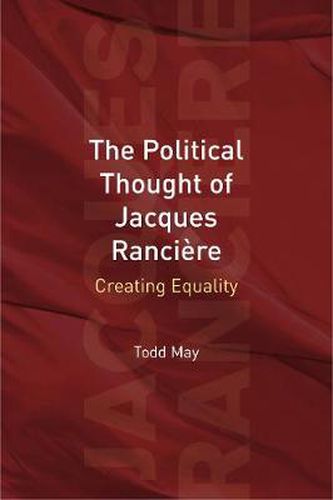Readings Newsletter
Become a Readings Member to make your shopping experience even easier.
Sign in or sign up for free!
You’re not far away from qualifying for FREE standard shipping within Australia
You’ve qualified for FREE standard shipping within Australia
The cart is loading…






This book examines the political perspective of French thinker and historian Jacques Ranciere. Ranciere argues that a democratic politics emerges out of people’s acting under the presupposition of their own equality with those better situated in the social hierarchy. Todd May examines and extends this presupposition, offering a normative framework for understanding it, placing it in the current political context, and showing how it challenges traditional political philosophy and opens up neglected political paths. He demonstrates that the presupposition of equality orients political action around those who act on their own behalf-and those who act in solidarity with them-rather than, as with the political theories of John Rawls, Robert Nozick, and Amartya Sen, those who distribute the social goods. As May argues, Ranciere’s view offers both hope and perspective for those who seek to think about and engage in progressive political action.
$9.00 standard shipping within Australia
FREE standard shipping within Australia for orders over $100.00
Express & International shipping calculated at checkout
This book examines the political perspective of French thinker and historian Jacques Ranciere. Ranciere argues that a democratic politics emerges out of people’s acting under the presupposition of their own equality with those better situated in the social hierarchy. Todd May examines and extends this presupposition, offering a normative framework for understanding it, placing it in the current political context, and showing how it challenges traditional political philosophy and opens up neglected political paths. He demonstrates that the presupposition of equality orients political action around those who act on their own behalf-and those who act in solidarity with them-rather than, as with the political theories of John Rawls, Robert Nozick, and Amartya Sen, those who distribute the social goods. As May argues, Ranciere’s view offers both hope and perspective for those who seek to think about and engage in progressive political action.